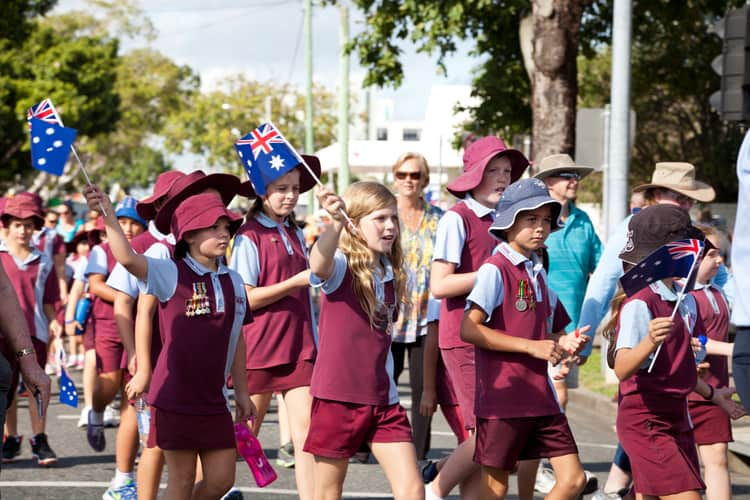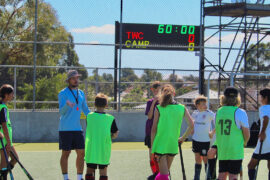Why ANZAC Day is Celebrated: A Parent’s Guide to Sharing the Legacy
Hey there, super moms and dads! ? Are you ready to embark on a historical journey with your little ones to discover the heart and soul behind ANZAC Day? It’s a day deep with history, solemn pride, and a spirit that unites communities each year on April 25th. In this guide, you’ll find the keys to not only understand ANZAC Day yourself but also to share its profound meaning with your children. So, let’s unravel the reasons behind this significant day together!
Introduction to ANZAC Day
ANZAC Day stands tall in the calendar, wreathed in the essence of respect and remembrance. It’s a day dedicated to honoring the brave men and women of the Australian and New Zealand Army Corps—fondly remembered as ANZACs—who fought at Gallipoli against the Ottoman Empire during World War I.
The Gallipoli Campaign: The Origin of ANZAC Day
The Gallipoli campaign, which commenced on April 25, 1915, was one of the major military actions World War I witnessed. The ANZAC forces joined the fray with hopes of capturing the Gallipoli peninsula to open the way to the Black Sea for the allied navies. Though the campaign did not result in victory, the valiance and unyielding spirit of the ANZAC troops left an indelible mark on their homelands.
The ANZAC Spirit: More Than Just a Memory
The “ANZAC spirit” echoes courage, comradeship, and sacrifice—a triad of qualities each of us treasures. These values were exemplified by the ANZAC soldiers and help kindle the essence of the day.
How to Explain ANZAC Day to Children
Alright, angelic educators, let’s tackle the “how-to” of explaining ANZAC Day to our curious munchkins. They may wonder why this day is unlike any other and why it’s wrapped in tradition and poignancy. Start weaving the story of ANZAC Day by relating it to the concepts of peace, honor, and remembering those who did so much to secure our future.
- Share Simple Stories: Kids gravitate towards stories and they’re a fantastic way to help them grasp the sacrifices made by others. Share age-appropriate stories of the ANZACs, focusing on their bravery and unity.
- Engage in Remembrance: Involve your children in ANZAC Day traditions like attending a dawn service, observing a minute’s silence, or wearing an ANZAC poppy. These actions forge a personal connection to the day.
- Create and Craft: Dive into some arts and crafts to commemorate the occasion. Crafting poppies or creating a remembrance wreath can be both educational and a tender gesture of homage.
To foster a deeper understanding, you can also delve into the stories of the ANZACs themselves. Libraries, online resources, and local museums can offer a trove of information that can make history come to life for your young historians-in-training.
Traditions and Tributes: The Ways We Remember
ANZAC Day is woven through with rituals and traditions that offer a glimpse into its core. From the somber dawn service and observance of silence to the vibrant parades and community gatherings, everyone, irrespective of age, can find a way to connect with the commemorations.
For many of us, the day begins with the Dawn Service—an early morning military-style commemoration that reflects the time of the original Gallipoli landing. It’s a profoundly emotive experience that resonates with the soul-stirring bugle call, the Last Post, symbolizing the end of the day’s labor and the final farewell.
Following the Dawn Service, many communities and organizations host the ANZAC Day March. Veterans, serving members of the military, and descendants wear medals and march in remembrance—a vivid tapestry of honor and history in motion.
Now, who’s heard of the game Two-Up? It’s an age-old gambling game that was famously played by ANZAC soldiers during World War I to pass the time. While it’s generally illegal, it surfaces as an accepted tradition in Australia on ANZAC Day, acting as a nostalgic homage to the diggers and their pastimes.
But hey, celebrating ANZAC Day isn’t only about looking back. It’s about shaping the future too. Teaching our youngsters about the significance of ANZAC Day sows seeds of appreciation, respect, and unity in their hearts. These lessons sculpt the citizens of tomorrow who value heroism, sacrifice, and peace—qualities as timeless as the legacy of the ANZACs themselves.
As you snuggle up with your family this ANZAC Day, share these tales and traditions. Kindle the flames of gratitude and pride for the past, and let those lessons illuminate the path ahead. Because when we remember together, we grow stronger together—and that, dear friends, is the true essence of ANZAC Day. Let’s not just tell our kids about history; let’s inspire them to carry forward the ANZAC spirit in all that they do.
Stay tuned, amazing parents! In the next section of our guide, we’ll explore creative activities to engage your little ones in honoring ANZAC Day and delve deeper into how and why we keep the ANZAC spirit alive with every generation. This journey is just getting started, and together, we’re going to ensure that the legacy of the ANZACs continues to resonate within the hearts of our children. Because at the end of the day, to remember is to honor—and to honor is to never forget.

5 Things Parents Should Know in Preparing for ANZAC Day
- Understanding the History: Before ANZAC Day arrives, it’s crucial to have a solid grasp of the events that unfolded at Gallipoli and what ANZAC stands for. This knowledge will arm you with the context needed to explain the day’s significance to your children and answer any questions they might have.
- Respecting the Symbols: The red poppy and the Dawn Service are central symbols of remembrance. Teach your kids about their importance and the respect they command. Explain that wearing a poppy or attending a service is a way to show gratitude and to pay tribute to the sacrifices of the ANZACs.
- Participating in Local Events: ANZAC Day is a community event. Check your local council or community boards for information about ceremonies and marches. Participation can provide a tangible experience of the communal respect and commemoration of the fallen.
- Relevant Readings and Stories: A few days before attending any ANZAC event, read relevant books or share stories with your children to make the concept real for them. Select stories they can emotionally connect with to help them understand the gravity of sacrifice and service without causing undue distress.
- Initiating Conversations: Kids are naturally inquisitive, so be prepared for a range of questions. Start conversations about the importance of peace, the reasons for war, and the role of soldiers. These discussions can sow the seeds for a lifelong respect for military personnel and an understanding of their sacrifices.
Addressing the ANZAC Legacy in Modern Times
While the original ANZACs may no longer be with us, their legacy endures through stories, memories, and the ongoing commitment to the ANZAC values. It’s essential to draw parallels between past and present to help children see the relevance of ANZAC Day in today’s world.
Speak about current serving members of the armed forces and veterans, emphasizing that they follow in the footsteps of the original ANZACs. The defense of freedom and dedication to service continues. It’s vital that children understand that ANZAC Day isn’t just a history lesson, but a living tribute that evolves with each generation.
How ANZAC Day Helps Shape Children’s Values
ANZAC Day is more than a history lesson; it’s a catalyst for instilling values in our children. By engaging with the spirit of ANZAC, children can learn about:
- Bravery: Knowing about the courage of the ANZAC soldiers can inspire children to face their own challenges with determination.
- Mateship: The strong bonds between soldiers highlight the importance of friendship, loyalty, and supporting others.
- Resilience: The stories of the ANZACs’ perseverance amidst adversity are powerful lessons in overcoming obstacles.
- Sacrifice: Recognizing the sacrifices made teaches children about selflessness and the greater good.
- Remembrance: Through remembering the fallen, children learn to value history and the price of the peaceful lives they enjoy today.
By sharing the anecdotes of ANZAC Day, you’re gifting your children an incredible array of life lessons, encouraging them to grow into empathetic, courageous, and informed individuals. So, as we continue on this journey of remembrance together, let’s pledge to nurture these values in our little ones. Join hands with your community this ANZAC Day and evoke the enduring spirit of the ANZACs in every heart, young and old. Through education, participation, and reflection, we can honor the legacy of those who have given their all for our tomorrow.
Remember, it’s through knowledge and participation that the true ANZAC spirit continues to thrive. As we enrich our children with the tales of heroism and fortitude, let’s also encourage them to be active bearers of the legacy. ANZAC Day is an opportunity to reflect, learn, and look forward as we impart the values of respect and remembrance to future generations.
Engage, educate, and embrace the spirit of ANZAC Day with your children, ensuring that the torch of remembrance burns brightly for years to come.
See more great Things to Do with Kids in New Zealand here. For more information see here
Disclaimer
The articles available via our website provide general information only and we strongly urge readers to exercise caution and conduct their own thorough research and fact-checking. The information presented should not be taken as absolute truth, and, to the maximum extent permitted by law, we will not be held liable for any inaccuracies or errors in the content. It is essential for individuals to independently verify and validate the information before making any decisions or taking any actions based on the articles.




